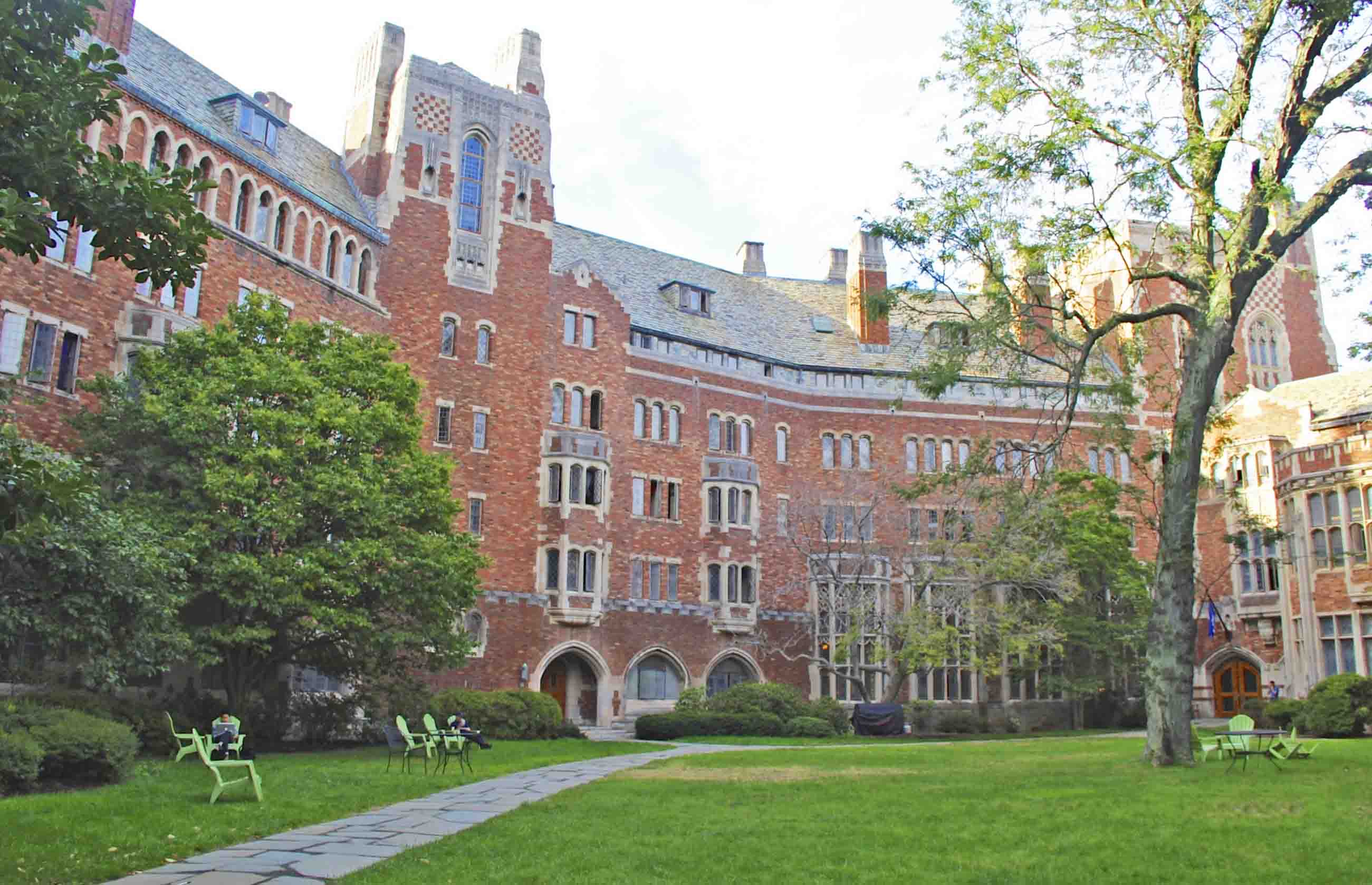
Together, the Whitney and Betty MacMillan Center for International and Area Studies at Yale, the Graduate School of Arts and Sciences, the Faculty of Arts and Sciences Dean’s Office and the Graduate Student Assembly will increase the available funding for graduate student conference travel by $180,000 annually, the MacMillan Center and Graduate School announced on Thursday.
The MacMillan International Conference Travel Grants program is contributing $120,000 of the $180,000 increase to allow doctoral students in humanities and social sciences programs at the graduate school to travel to domestic and international scholarly conferences, workshops and meetings on international topics. Students in select doctorate programs in the professional schools that have a humanities or social sciences focus are also eligible for the grant.
To complement the MacMillan Center conference travel grants, the faculty dean’s office worked with the graduate school administration and the graduate assembly to increase the annual funding for the already-established Graduate Student Assembly Conference Travel Fellowship from $60,000 to $120,000. Originally available for all graduate students, the assembly’s program will now primarily support students in the humanities or social sciences for programs on noninternational topics, as well as students in the sciences.
“It’s just crucial that in developing your research profile as a graduate student, you have access to the intellectual stimulation and input of people from your whole scholarly community, not just Yale, but beyond,” said faculty Dean of the Humanities Amy Hungerford. “This funding model [is] both generous enough to really address students’ needs broadly and also easy for students to access.”
After looking into how different departments in the humanities fund graduate student conference travel, Hungerford found a great need for funding. However, Hungerford said that as the faculty dean’s office worked to increase funding for humanities students, it also sought to increase conference travel funding for students in the social sciences and the sciences. Dean of the faculty Tamar Gendler said that one of the “most important professional opportunities” for graduate students is the chance to interact with colleagues outside their home university.
According to Hungerford, the faculty dean’s office ultimately pooled its resources with those of the graduate school and the MacMillan Center so that together, the three units could cover conference travel for any student, regardless of area of study.
“I expect that the outcome [of the two programs will be] that more students will have more opportunities to travel to conferences,” said Deputy Director of the MacMillan Center George Joseph. “These academic meetings play a truly vital role in the professional development of graduate students becoming scholars and faculty because it’s the market in which you present your ideas and how you network.”
The MacMillan travel grant awards funds on a rolling basis for conference travel, up to $500 for doctoral students and $750 for doctoral candidates. However, there is no limit on the number of conferences for which a student can apply for funding, as long as the student meets the application requirements. Still, the grant is not intended to cover the entire cost of travel, Joseph said, but rather to supplement funds from home departments and other Yale sources. According to Joseph, the grants will be administered in four $30,000 cycles throughout the academic year on a first-come, first-serve basis.
Although the application for the program is already live, the details of the graduate assembly conference travel fellowship expansion are still being ironed out. According to Chair of the Assembly Wendy Xiao MED ’18, the existing program has a competitive application process, in which the assembly makes decisions on who receives funding based on need and merit. Each cycle, the assembly was able to award approximately 50 percent of applicants grants between $400 and $1000, Xiao said.
Now, the assembly must adjust its program as it expands, which Vice Chair of the Assembly Laura Brown GRD ’20 said will look similar to the MacMillan program in theory. Going forward, the assembly’s Conference Travel Fund Director, Steven Paniagua GRD ’21, will work with the MacMillan Center to determine the application process for the assembly’s program, with the goal of making the applications as similar as possible to streamline the processes. The assembly will complete its December funding cycle, which is underway, and then transition to a new application process for its March cycle.
“It’s very important to have this independent conference travel funding because it’s a really big equalizer,” said Xiao. “Graduate students come from very different divisions and very different departments with very different [principle investigators] and advisors who are able to provide funding or not, so I think having this external source of funding is very important in equalizing the circumstances for all graduate students.”
In addition to its conference travel grant, the MacMillan Center also provides up to $5,000 for predissertation grants and up to $180,000 for international dissertation research fellowships.
Adelaide Feibel | adelaide.feibel@yale.edu







